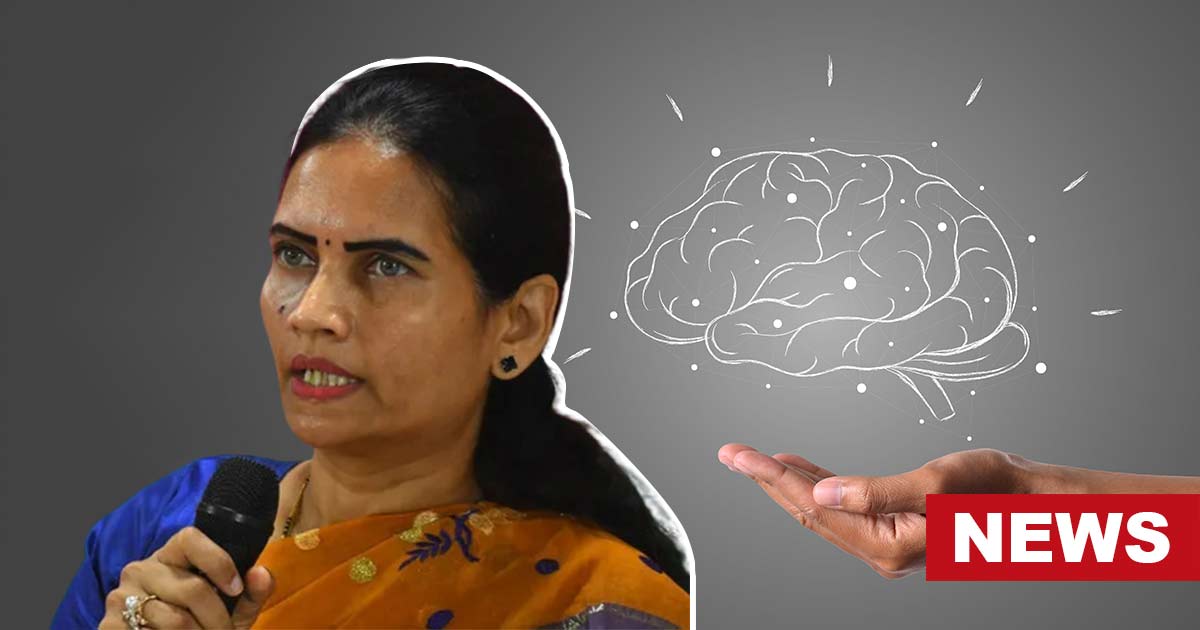Mental health has emerged as a crucial public health concern in India, and the government, led by Prime Minister Narendra Modi, is taking proactive steps to address it with a dedicated “mission mode,” according to Union Minister Bharti Pravin Pawar.
Speaking about India’s mission mode in mental health initiatives at a national conference on mental healthcare organized by the National Human Rights Commission (NHRC) at Vigyan Bhawan, the minister emphasized the need to transform societal perceptions about mental health.
Themed as “Moving Mental Health Beyond Institutions,” the conference aims to discuss the Indian Government’s “mission mode” initiatives in tackling issues related to mental healthcare systems and promoting awareness to eliminate the associated stigma.
Pawar stressed the importance of eliminating the stigma associated with mental health issues, which often discourages individuals from seeking help. She underscored that mental well-being is an integral aspect of overall health, affecting people regardless of age, gender, or socio-economic status.
Citing the National Mental Health Survey of India conducted in 2016, she expressed concern over the high prevalence of mental disorders in adults above 18 years, which stands at approximately 10.6 percent.
The government’s response to this pressing issue involves bolstering mental healthcare infrastructure and training healthcare professionals. Recognizing the significance of mental health on par with physical health, the central government has developed a national mental health policy and enacted the Mental Healthcare Act in 2017, granting legal rights to individuals seeking mental health support.
The government has also focused on integrating mental healthcare into primary healthcare services and has ensured provisions for mental health facilities in the 22 AIIMS across the country.
Despite these efforts, Pawar acknowledged that a significant gap remains between the number of people in need of mental healthcare and those who have access to it. She urged collaborative efforts to raise awareness and elevate mental health care standards to meet the rights of the people.
She said, “Mental health is an integral part of our health as it affects all aspects of our lives … I am assured that we all can work together to boost both awareness and care for mental health and take it to higher standards which people have a right to.”
The NHRC is actively involved in addressing mental health concerns and recently conducted visits to various mental healthcare institutions in Gwalior, Agra, and Ranchi. These visits led to a comprehensive report on the implementation of the Mental Healthcare Act, 2017, which was presented during the conference.
Furthermore, the NHRC has published a book titled “Mental Health – Concern for All: In Context of the Mental Healthcare Act, 2017” to raise awareness about mental health issues.
Pawar emphasized that under PM Modi’s leadership, mental health has gained prominence, evident through the passage of the landmark Mental Healthcare Act, 2017.
She also highlighted that mental health has been included in the flagship Ayushman Bharat scheme, and the National Tele-Mental Health service has been established to provide cost-effective treatment and support to individuals in need. She also looked forward to other long-term Mission Mode Projects in mental health to address the ongoing crisis in the country.
The minister emphasized the need for a new approach to mental healthcare that transcends institutional limitations and emphasizes community-based support. She urged conference participants to address the challenges in mental health care in India and work towards an accessible, affordable, inclusive, and compassionate mental health system.
The conference will focus on four thematic areas that concern India’s mission-mode in mental health initiatives. These include the implementation challenges of the Mental Healthcare Act, 2017; mental health establishment infrastructure and human resources;
the rights of individuals with mental illness, including reintegration, rehabilitation, and empowerment; and the latest trends in critical mental health care, international perspectives, and future developments.
What Can You Expect From India’s Mission Mode Projects In Mental Health?
1. Increased Mental Health Awareness:
A primary objective of initiatives that falls within India’s mission mode in mental health is to heighten awareness about mental health issues in society. These aim to foster a better understanding of these concerns and reduce the stigma associated with mental illness, thereby promoting a positive attitude towards mental health.
2. Improved Access To Primary Mental Health Care:
The Indian Government recognizes the importance of addressing mental health concerns and ensuring that mental health services are readily available to all in need.
Efforts will be made to enhance healthcare infrastructure under these initiatives, making mental healthcare facilities easily accessible to people of all ages, genders, and geographic locations.
3. Greater Use Of Technology In Mental Health Care:
One of the key goals of the Indian Government working on mission mode to address the burgeoning mental health crisis is to leverage technology and digital methods to aid individuals seeking mental health support.
By incorporating online consultation and counseling services, these initiatives aim to bridge the gap between the demand for mental health care and its availability, ensuring that everyone receives the necessary support and care.
4. Prompt Response To Mental Health Emergencies:
The Indian Government plans to establish 24/7 helpline centers to provide immediate assistance during mental health emergencies. These helpline centers will efficiently respond to such situations and connect individuals with mental health professionals for timely support.





















